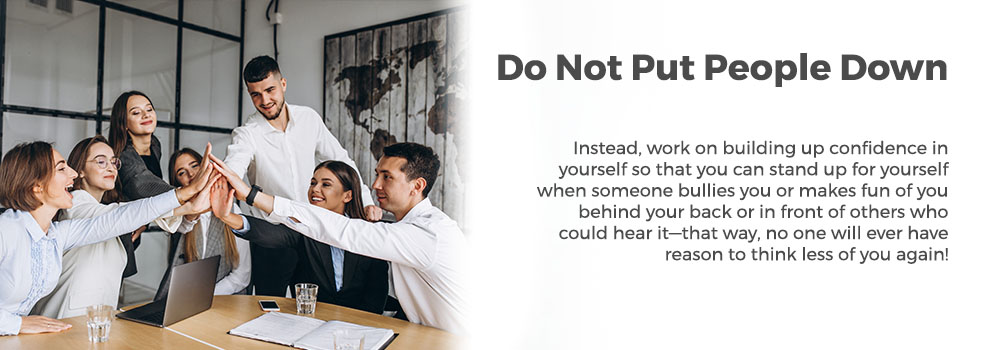What Is A Respectful Workplace And How To Build One
Respectful workplace culture is a term thrown around a lot, but what is it, exactly?
Is it putting your employees on a pedestal and treating them like royalty?
Or is it something more than that?
A respectful workplace culture values respect for each other and encourages everyone to contribute to the organization’s success.
When you treat your employees with respect, they’re likely to return that respect for you.
Furthermore, it’s about having high levels of trust among employees and an environment where employees feel safe and comfortable working together.
However, building a respectful workplace isn’t easy, but following these tips can help you reach your goals.
Read on a comprehensive guide on a respectful workplace that promotes loyalty and pride!
Save Thousands Of Dollars With Coggno Prime Subscription
What Is A Respectful Workplace?
A respectful workplace is one:
- that fosters a feeling of safety and security,
- where employees feel comfortable and confident,
- where they know that the company cares about them as people, and
- where people felt listened to and heard.
In other words, a respectful workplace is all about creating workplace respect and great relationships between employees and managers.
Why is respect important in the workplace?
Respect is a two-way street. If you are questioning how to get respect in the workplace, you have first to learn how to show respect in the workplace.
If you don’t show respect for your colleagues, no one will want to work with you anymore—and if you don’t show them respect, why should they?
When we work together and spend time together, our actions reflect on each other’s attitudes toward ourselves. So it’s important being respectful in the workplace.
In this way, respectful behavior helps reinforce positive relationships between team members by fostering trust within organizations (i.e., “theirs” vs. “ours”).
Case Study – Coggno & Harvard Revolutionizing Training Delivery
Benefits of a Respectful Workplace Culture
A respectful workplace culture is a great place to work. It helps employees feel valued and appreciated, making them more productive and loyal. Here are a few benefits of respectful workplace culture:
1. Increases Employee Engagement
Employee engagement is the state of being fully involved in and enthusiastic about your work.
When employees feel respected by their superiors, they will likely be engaged in their jobs and give their all when completing tasks.
Furthermore, it leads to increased productivity because employees put more effort into their tasks than if they didn’t have a positive relationship with the person who gave them instructions or feedback on what needs improving within the company’s operations.
2. Contributes To Job Satisfaction
Job satisfaction is higher when employees feel respected by their employer—not only does this lead them to stay with their company longer, but it also increases their engagement at work!
Job Interviews – Getting The Job You Want
3. Facilitates Creativity
Creativity and innovation can thrive in a respectful environment because it encourages open communication between employees, so everyone can access information from their colleagues without asking for it directly.
It makes it easier for creative ideas to surface because people feel safe and respectful sharing their thoughts with others in the office environment.
4. Promotes Loyalty And Pride
Employees who know their company values them will be more likely to stay engaged in their work and produce results that benefit the organization.
Thus, these employees are more likely to feel loyal to their employers and less likely to leave when they find something better.
5. Decreases Lost Time
When people have a positive working relationship with coworkers, it’s easier for them to work on tasks independently.
They’re less likely to be late or absent from work because they can count on colleagues being there for them when they need help or support—which improves productivity and decreases lost time!
110 Introduction To Personal Branding
6. Increases Collaboration
With a respectful workplace, culture teams are likelier to work together and collaborate, leading to higher productivity and better results for the company.
Additionally, employees are likely to support each other when it comes time for difficult decisions or tough conversations.
They also feel empowered by their coworkers’ confidence in them—which translates into greater trust among team members (one-way respect that can foster personal growth).
10 Strategies to Foster a Culture of Respect in the Workplace
When you walk into the office, you’re representing the company.
If you have a good work ethic and are a great person to work with, others will want to follow your example. Below are the 10 ways to be respectful:
1. Do Not Gossip At The Workplace
Gossiping at the workplace is not only disrespectful, but it can also lead to discrimination and harassment. It may seem harmless to entertain yourself or make a point, but gossiping can seriously affect employees in your office.
Case Study: How Coggno Empowered Costo to Achieve Unprecedented Compliance and Safety Standards
2. Do Not Use Profanity
Profanity is never okay in the workplace. It’s disrespectful, makes people uncomfortable, and reflects poorly on you as an employee and person.
You need to speak respectfully and use appropriate language. It will help establish a respectful workplace culture and create an environment where everyone feels welcome and safe.
3. Do Not Put People Down
Don’t ever put someone down in front of other people—whether by making fun of them, laughing at them, talking down to them, etcetera!
Instead, work on building up confidence in yourself so that you can stand up for yourself when someone bullies you or makes fun of you behind your back or in front of others who could hear it—that way, no one will ever have reason to think less of you again!
Job Interviews – Getting The Job You Want
4. Greet People At The Workplace
You must greet your colleagues daily as part of your responsibility as an employer/employee. The way you greet someone shows them that you value them and care about how their day is going.
This positive approach increases productivity and improves morale in the workplace!
5. Count An Employee Contribution
One way to show appreciation for all employees’ hard work is by counting their contributions towards your business goals each month.
You could do this by tallying up the hours spent working on projects or tasks around the office space each week; this will help show how much effort each employee has put into helping your company grow!
6. Do Not Discriminate Against People
Discrimination is often seen in the workplace as people are treated differently based on race or gender. If you notice another employee being mistreated, do not become part of the problem by discriminating against them.
Instead, try to understand what the person is doing and how they can change it. It will help stop discrimination in your workplace and ensure everyone is treated with respect regardless of race or gender.
7. Do Not Be Insensitive To Employee Needs
If you notice an employee struggling with their workload or tasks at work, it is important to be sensitive to their needs by offering suggestions for things they can do to help themselves succeed at work.
Such as taking breaks when needed or asking for additional resources so they can complete their tasks efficiently without asking for help whenever they need something done correctly.
8. Distraction During Work
It is a big one, and it’s one of the most common ways people contribute to a workplace culture of respect.
Distractions can include talking on your phone during meetings or working with partners who aren’t focusing on the task. However, it’s important to remember that distractions are just as much an issue of attitude as they are an issue of behavior.
If you don’t want people to be distracted by you, ensure you’re not distracting anyone else by walking around with your phone or talking during meetings.
9. Strong Communication Practice
Another common way employees contribute to a workplace culture of respect is through communication practices such as being clear about expectations before starting work, giving feedback after completing each task, etc.
Being clear about what is expected from you will help prevent misunderstandings and frustration later on when things go wrong!
10. Defend Employees
This one’s self-explanatory—if someone is being mistreated at work, speak up for them! Don’t let anyone take advantage of their position of power over someone else if they’re not contributing positively to their team or work environment in any way, shape, or form!
Maximize Training, Minimize Costs With Coggno Prime
Conclusion
How do you get started now that you know:
- what a respectful workplace looks like and
- how to build one for your organization?
Start by acknowledging your values and ensuring they are reflected in your company’s operations. Then, think about creating an environment where people feel valued and respected.
You can start with basic gestures such as saying “good morning” or “have a nice day,” but don’t stop there! Think about offering opportunities for team members to take on responsibility outside of their daily duties at work as well.
Don’t just give them tasks; instead, find ways for them to make contributions towards the greater good of their organization without being asked how much time they want from their manager each week.
Employees who feel respected at their workplace will be motivated to work better.
What do you think?
Want to give your managers and employees respectful workplace training?
Explore Coggno training and subscribe yourself to the one that meets your needs.
Frequently Bought Courses:
- Balance And Harmony In Your Life Bundle
- Brand Position – Creating Your USP Course
- Hazardous Materials Transportation
- The Pillars Of Leadership Series
- Campus Safety: General Installation Requirements For Lightning Protection Systems




















